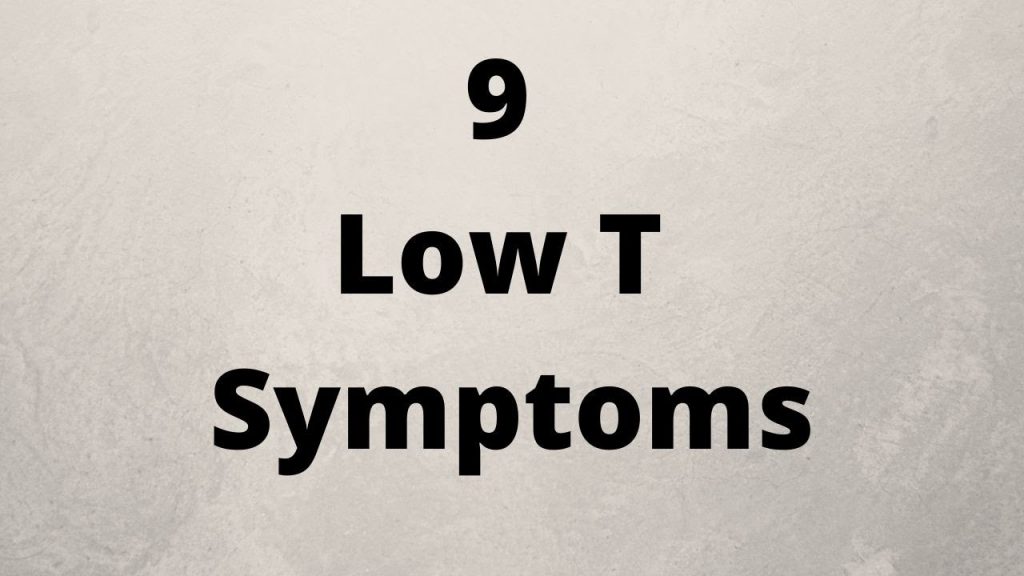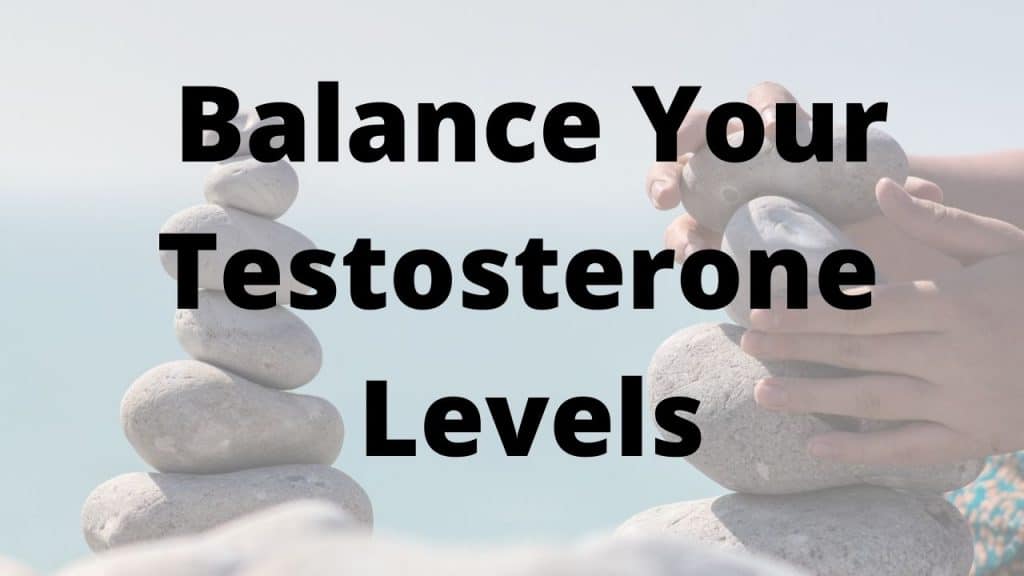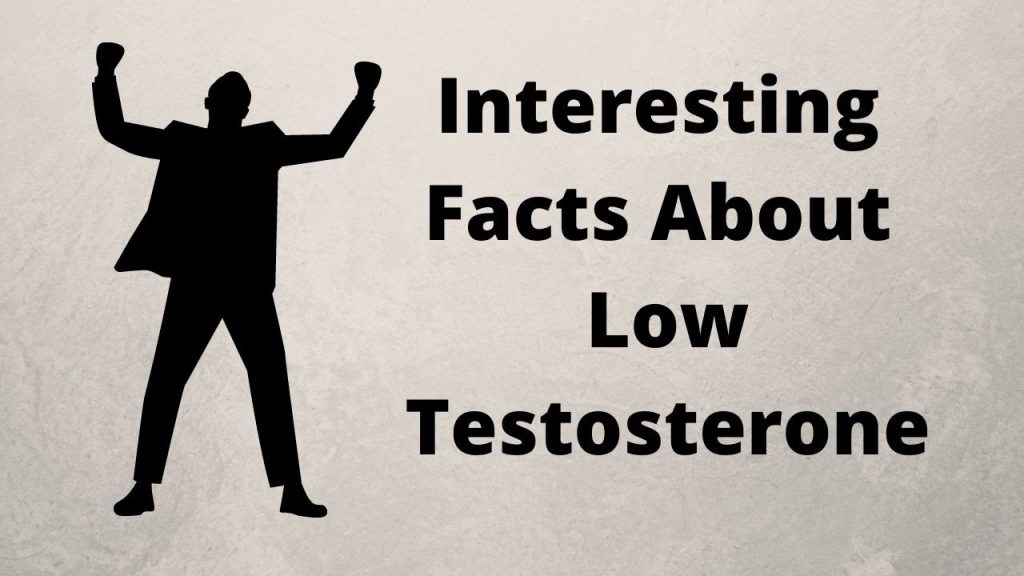9 Signs of Low Testosterone
Do you feel tired, have a reduced sex drive, and or difficulty sleeping?
If so, you may be suffering from low testosterone. Low T is quite common in men as they age.
In this article I will discuss 9 major signs of low testosterone, possible reasons for the symptoms and how they affect you.
If you have any questions about this article, just call or text Healthy At 60 Plus, at 609-410-4790.
Now let’s see what we have today.
Low testosterone is a condition that affects millions of men. It can wreak havoc on your sex life, energy levels and mood.
The signs of low testosterone are subtle but they’re there if you know what to look for.
Here are 9 signs of low testosterone.
Problems with sexual function, such as ED.
According to the Mayo Clinic, low testosterone levels may lead to a decrease in sexual function. In men with low testosterone, it can be difficult to achieve an erection or sustain one long enough for sex.
The problem is, that many men don’t realize they have this problem until it’s too late.
It’s important for all men, especially those over 40, to get their testosterone levels checked regularly, so they can catch any potential problems before they become more serious.
Thinning hair.
Testosterone plays an important role in the development and growth of hair. In men with low testosterone, hair loss can occur on the scalp, face, chest or back.
Hair thinning is typically gradual, but may also happen suddenly due to factors such as stress or illness.
A healthy lifestyle that includes a balanced diet and regular exercise, can help maintain normal levels of testosterone production throughout life.
Decreased bone density.
Low testosterone causes increased bone density loss, which can lead to osteoporosis. In a recent study, it was found that men with low testosterone levels had the same odds of developing osteoporosis as women.
The condition can lead to a number of health problems, including back pain and an increased risk for fractures.
Insomnia.
Do you find it difficult to fall asleep at night?
If so, your testosterone levels might be the culprit. According to research from the University of California San Francisco, low testosterone in older men can lead to insomnia or difficulty maintaining sleep.
The study found that as a man’s testosterone decreases, his odds of developing insomnia increase by up to 54%.
One reason for this is that the hormone that regulates sleep cycles, melatonin, is also regulated by testosterone.
Reduced sexual desire.
Many men are unaware of the link between low testosterone and reduced sex drive.
Testosterone is a hormone that activates sexual desire and other masculine traits. It’s possible to have normal levels for years, but then suddenly experience a lack of libido as you age.
If this sounds like your situation, talk with your doctor about your options – there are many treatments available!
Muscle mass is reduced.
Testosterone is a key ingredient to building muscle.
Without enough testosterone, you can lose your ability to build and maintain lean muscle mass.
This is because testosterone plays a key role in protein synthesis, and it also boosts the male growth hormone.
Lack of energy.
A common symptom of low testosterone is lack of energy.
Testosterone affects the body’s metabolism, so an imbalance can lead to the feeling of being tired or sluggish all the time.
This happens because testosterone affects the body’s ability to use glucose which is used to boost energy levels.
More weight around your waist.
It’s been shown in recent studies that low testosterone levels are directly linked to increased abdominal fat and obesity.
The study also showed that men with low testosterone, were more likely than those with normal hormone levels to have higher body mass indexes and insulin resistance — both of which can lead to diabetes and heart disease.
Men who took steps to boost their hormone levels lost significant amounts of belly fat over the course of one year, without making any other lifestyle changes such as diet or exercise.
Changes in mood can sometimes happen.
Low testosterone can sometimes cause mood swings and irritability, especially in older men.
It’s a common misconception that these mood changes are just “normal” as you get older. In fact, low levels of the hormone may be to blame for your grouchiness or lack of motivation.
Question – When should you see a doctor for low testosterone?
As you get older, your testosterone levels naturally decrease. This is a normal part of aging and does not necessarily mean that something is wrong.
However, there are some situations in which low testosterone may be a medical concern for men.
For example, if you have symptoms such as ED or decreased sex drive combined with other symptoms, such as weight gain or changes to your facial and body hair then it’s important to see your doctor about this issue.
In conclusion
The reasons for low testosterone levels are varied, but the most common causes of low testosterone in men include:
– Age
– Obesity
– Stress and depression
– Other medical conditions such as type 2 diabetes or sleep apnea.
It is important to note that many signs of low testosterone may not be easily recognized by your physician. The following are some symptoms of a decreased level of this hormone:
Loss of muscle mass, hair loss, inability to concentrate, infertility (in both males and females), poor sexual performance and ED.
A range of treatments exist. Medical treatment options include testosterone replacement therapy, as well as testosterone supplements and drugs that increase libido.
Boosting testosterone naturally can be done through exercise and weight loss as well as a number of different foods and herbs.
OK, that’s it for this article. But just one more thing.
If you have any questions about this article, just call or text Healthy At 60 Plus, at 609-410-4790.
Are you suffering from ED, primarily from poor blood flow. At Healthy At 60 Plus we have a preferred method to reverse this called Nitric Oxide Therapy.
Click the link in this article to see a great explanation of Nitric Oxide Therapy and how it can change your life.
Questions and Answers From Around The Web

How can you tell if a man’s testosterone is low?
Specific Signs/Symptoms of Testosterone Deficiency (TD) Reduced sex drive. Reduced erectile function. Loss of body hair. Less beard growth. Loss of lean muscle mass. Feeling very tired all the time (fatigue) Obesity (being overweight) Symptoms of depression. https://www.urologyhealth.org/urology-a-z/l/low-testosterone
How do I know my testosterone level?
By running a simple blood test, your doctor will be able to see if you have abnormal levels of testosterone. Normally, testosterone in your blood should be between 300 ng/dL and 1,000 ng/dL. Your doctor will also do a physical exam to check your hair growth, muscle growth, and the size and appearance of your testicles. https://www.goodrx.com/conditions/hypogonadism/low-testosterone-signs-symptoms-causes-treatments
How do you fix low testosterone?
The best way to improve testosterone levels is by adopting some lifestyle habits that can improve overall health and well-being. Getting enough sleep. … Maintain a balanced diet. … Lose weight. … Stay active. … Stress reduction. … Vitamins and supplements. … Review medications. … Avoid drugs and alcohol abuse. https://www.medicalnewstoday.com/articles/322508
What is average testosterone level by age?
Testosterone levels depend largely on age, genetics and existing medical conditions. Adult males under 50 years of age with testosterone levels between 230-350 ng/dL and adult males over 50 years of age with testosterone levels between 300-500 ng/dL are typically diagnosed with Low T. https://synergenxhealth.com/diagnosed-with-normal-testosterone-levels-whats-normal-whats-not-and-whats-low-t/
Is 500 a good testosterone level?
Any level over 350 is considered average. Some labs report testosterone levels up to 800 or 1000, but the average man probably won’t measure that high, and there is not a benefit to having a significantly higher testosterone level. https://surgery.wustl.edu/mens-health-low-testosterone/
What are the four foods that destroy testosterone?
People worried about their testosterone levels might choose to avoid the following foods. Soy products. Soy foods, such as tofu, edamame, and soy protein isolates, contain phytoestrogens. … Dairy products. … Alcohol. … Mint. … Bread, pastries, and desserts. … Licorice root. … Certain fats. https://www.medicalnewstoday.com/articles/325186
How can I test my t level at home?
Testosterone home-testing kits are also available from companies such as LetsGetChecked. They use your saliva to test your hormone levels. After taking the test, you’ll send your sample to a laboratory for testing. You can purchase a test kit online from LetsGetChecked here. https://www.healthline.com/health/testosterone-test-kits
How long does it take for testosterone to kick in?
Studies show that men who receive testosterone replacement start to notice their sex drive rising after just three weeks. This is often the first sign that the TRT is starting to work. Stick with it and you should soon see improvements in many other aspects of your life. https://www.elitehealthcarecenter.com/2019/10/01/how-long-does-it-take-to-feel-the-benefits-of-testosterone-replacement-therapy/
What should a 40 year old man’s testosterone level?
Most doctors agree that a “normal” reading falls anywhere between 300 to 1,000 nanograms per deciliter (ng/dL). About 40% of men over age 45 will have levels that come in below that range. But a low reading by itself isn’t enough to warrant alarm. https://www.webmd.com/men/features/keep-testosterone-in-balance


